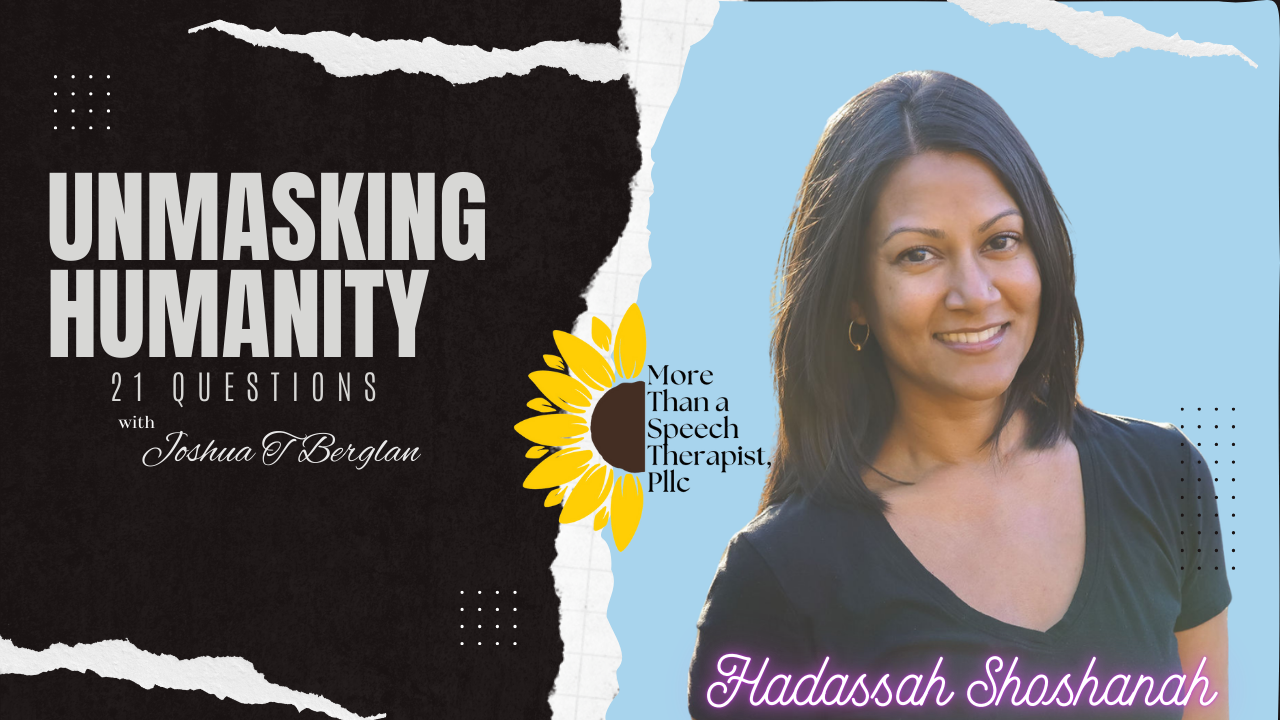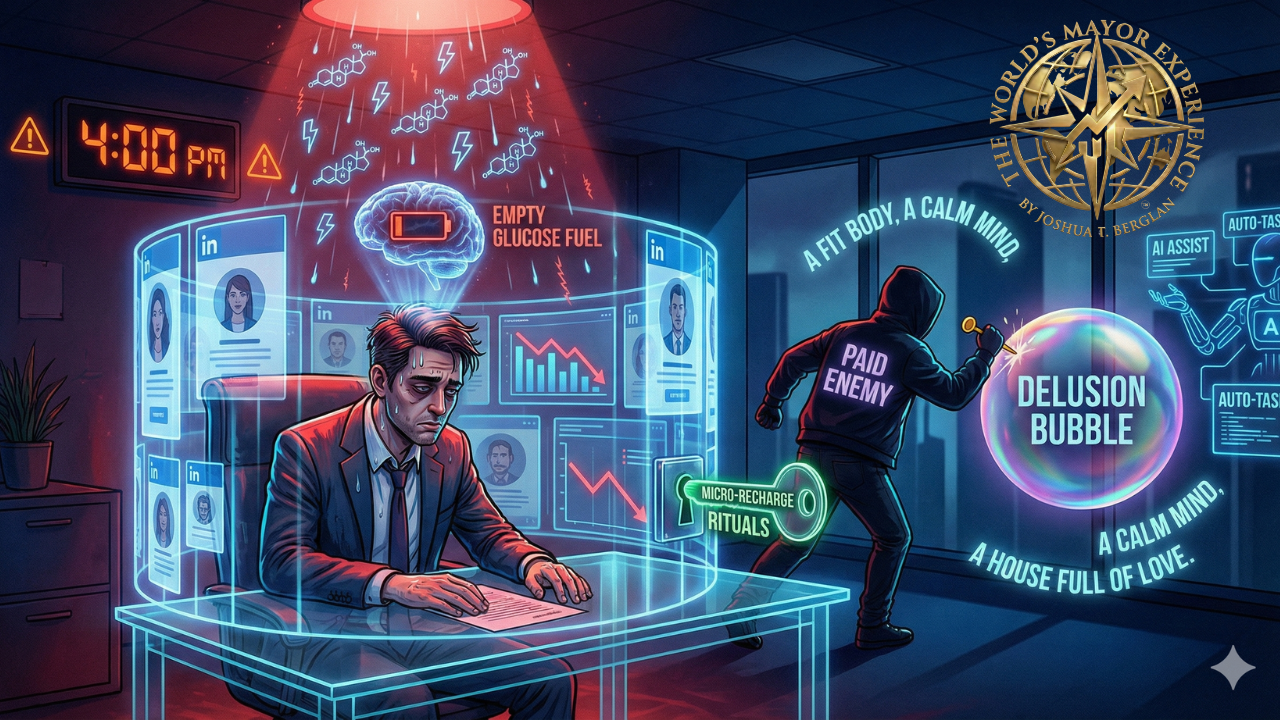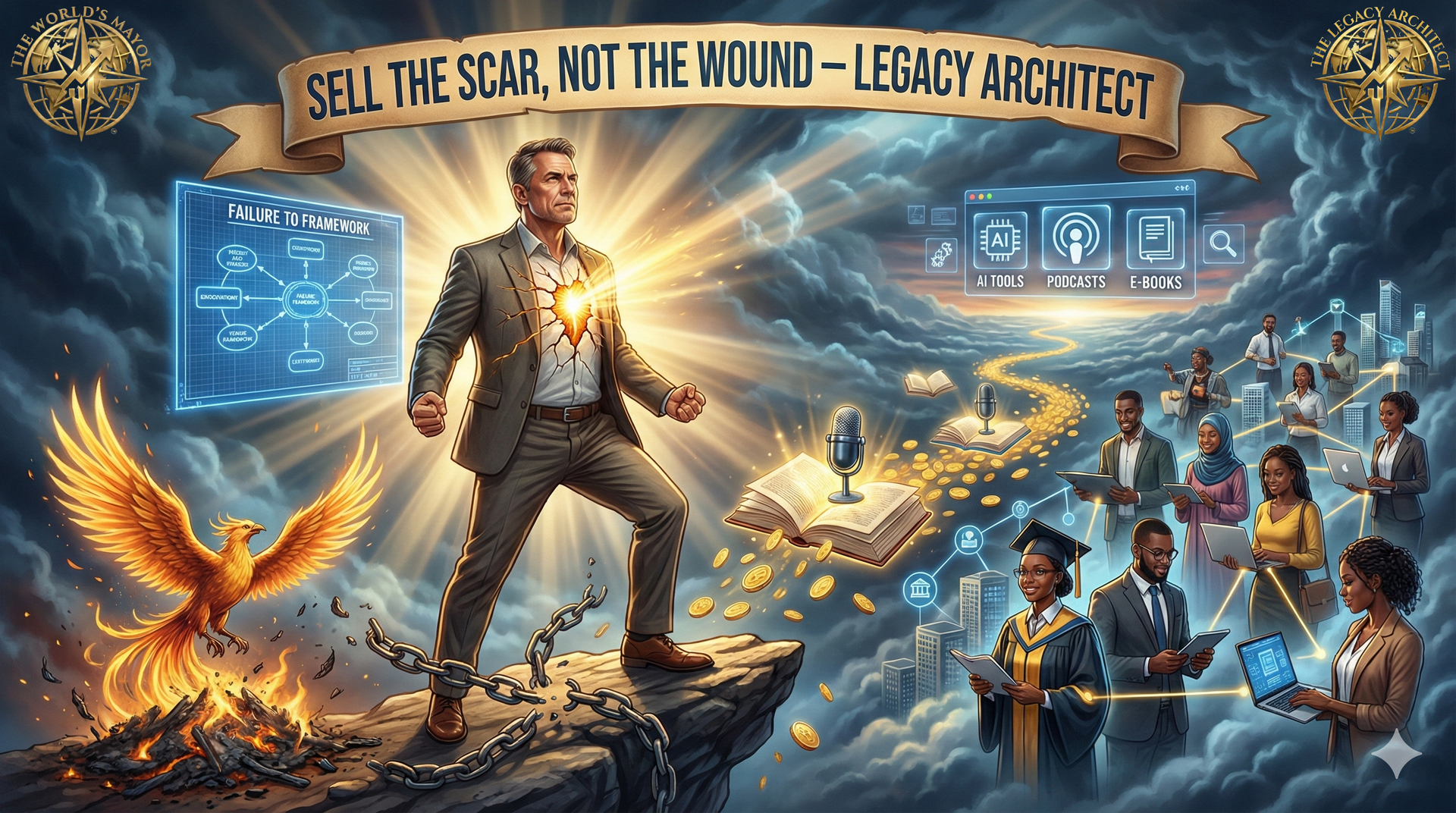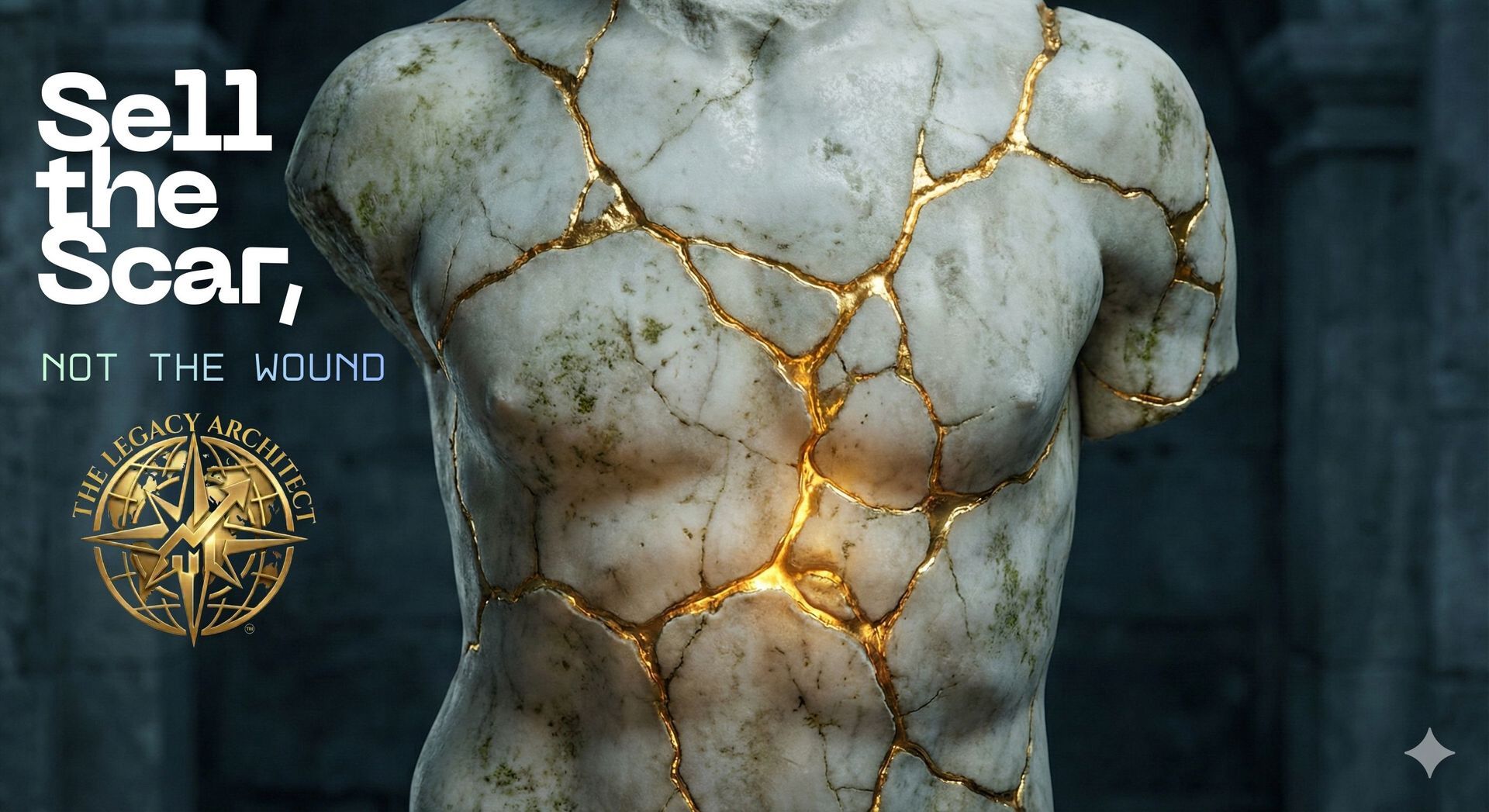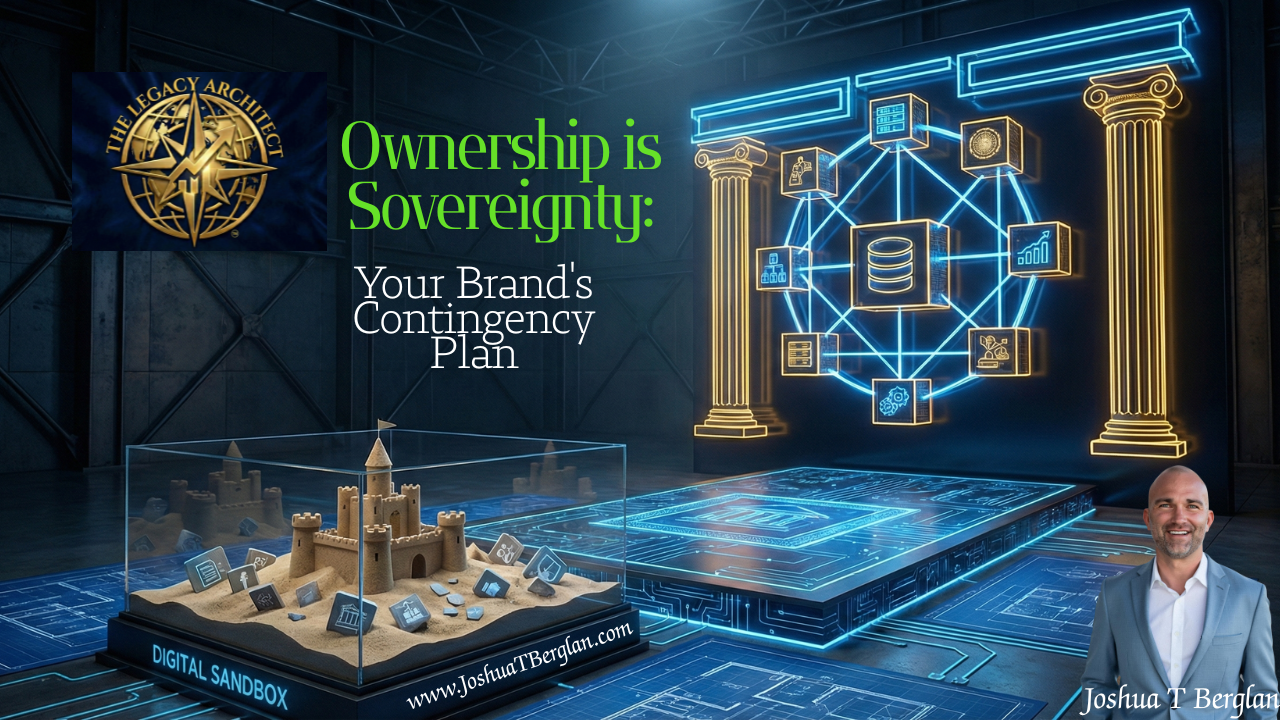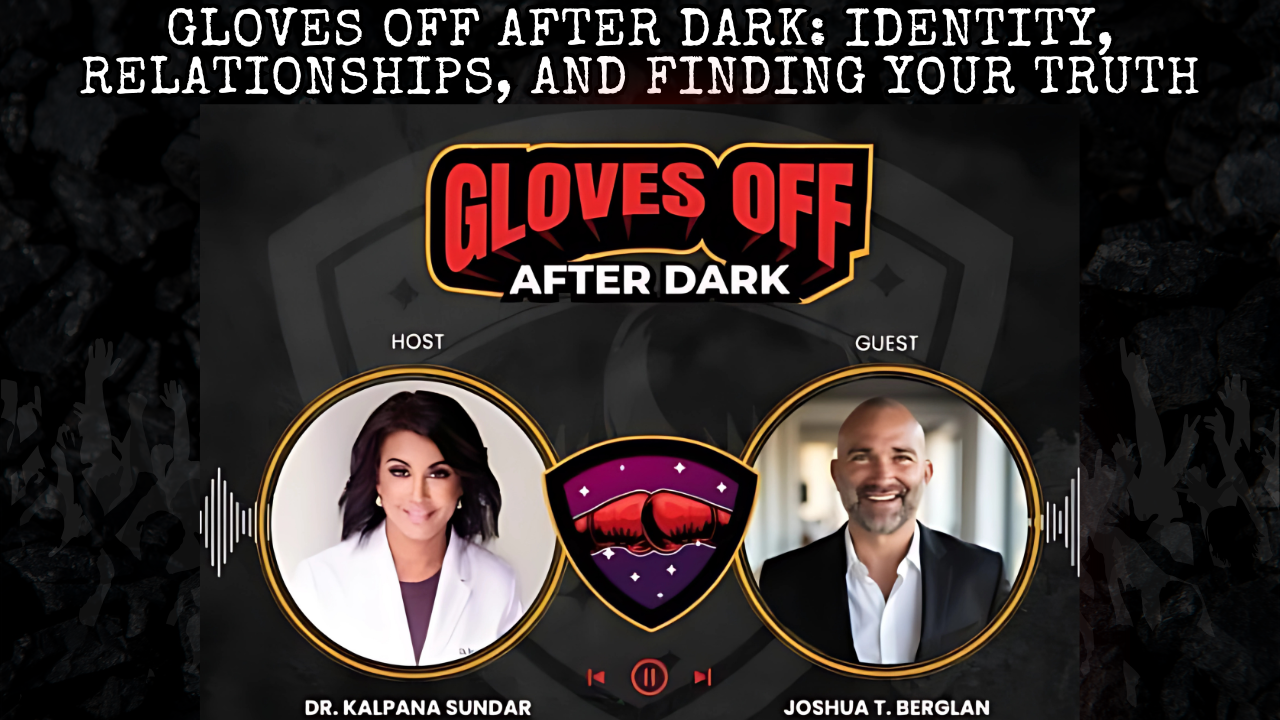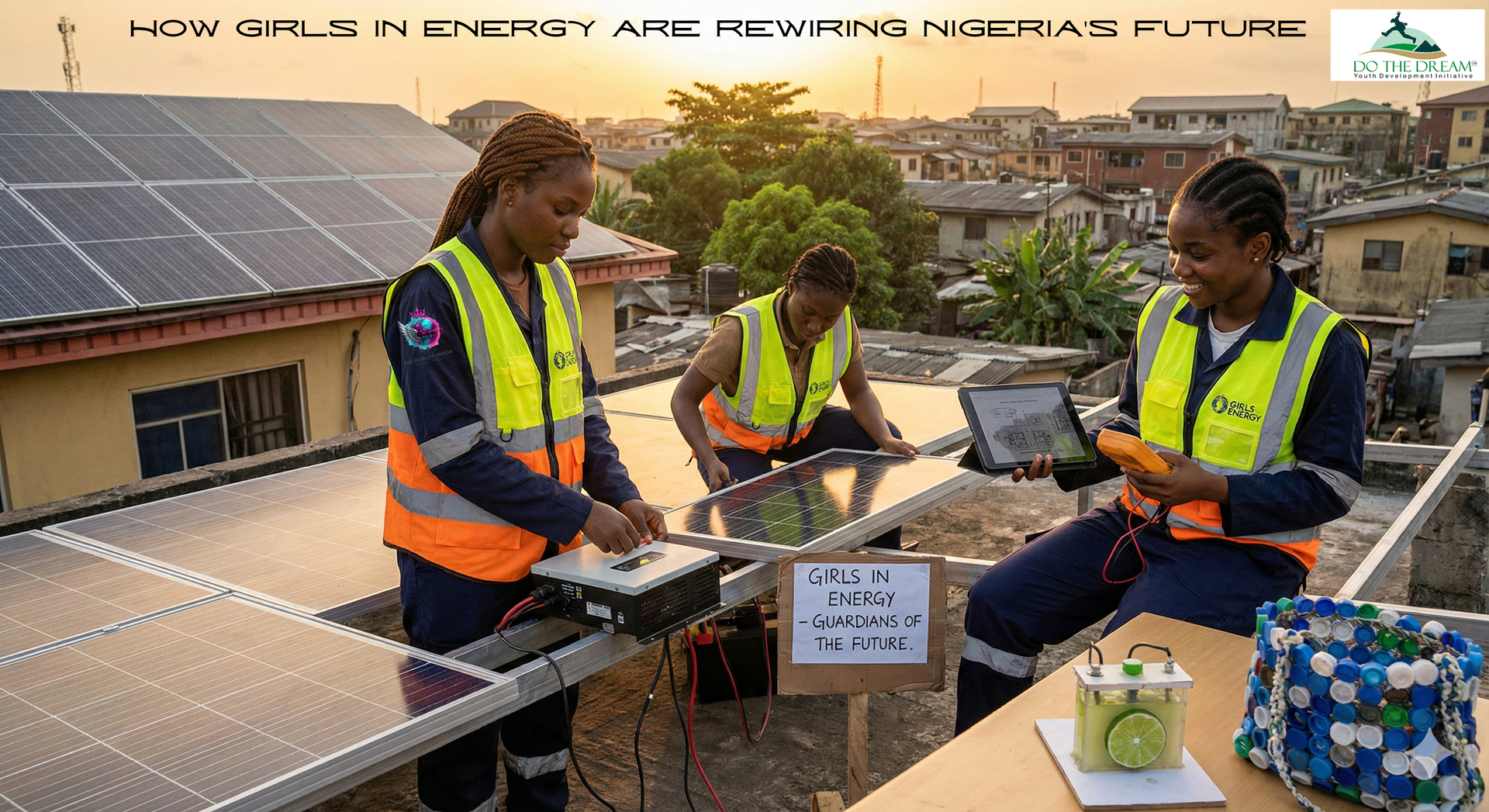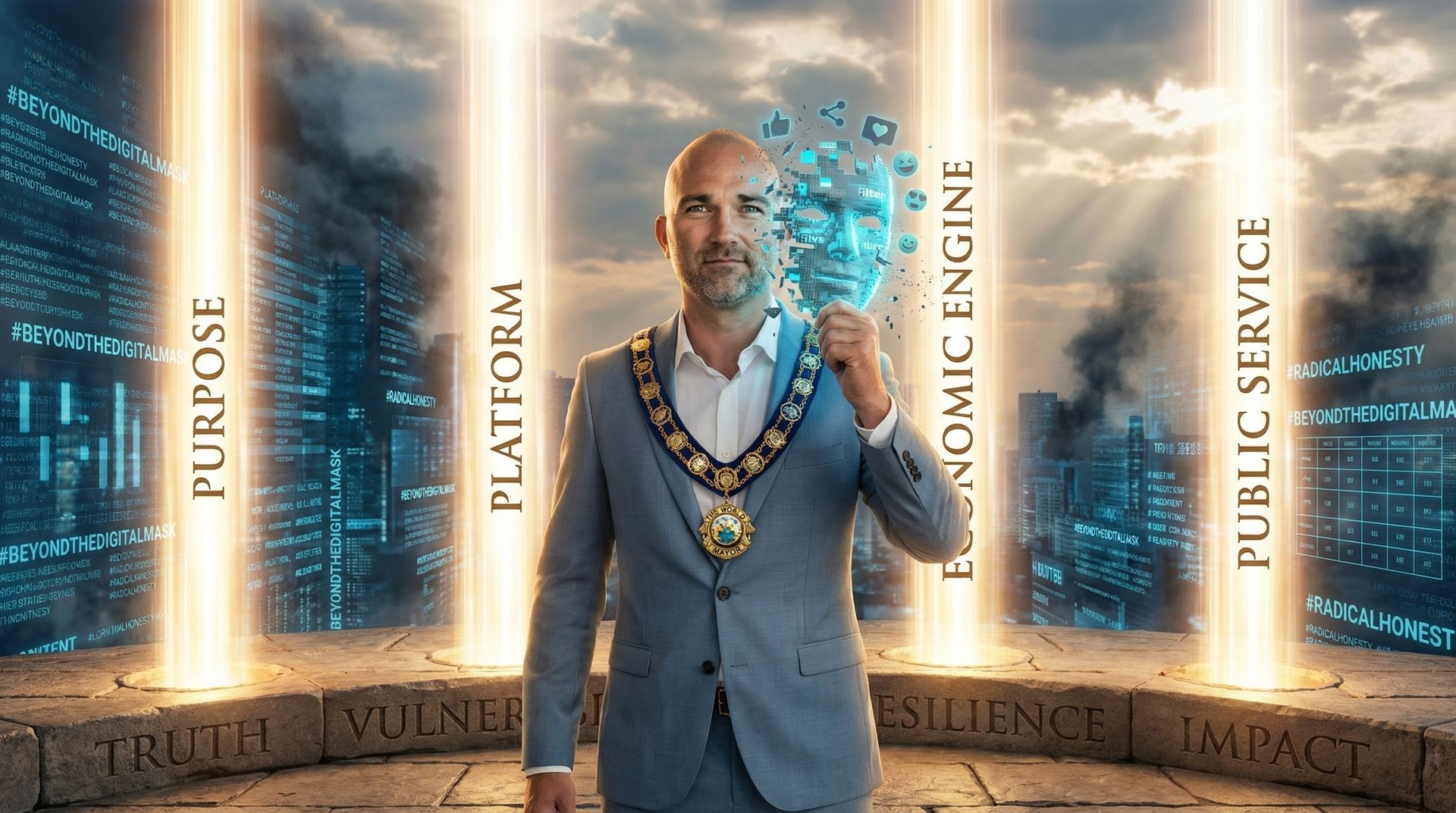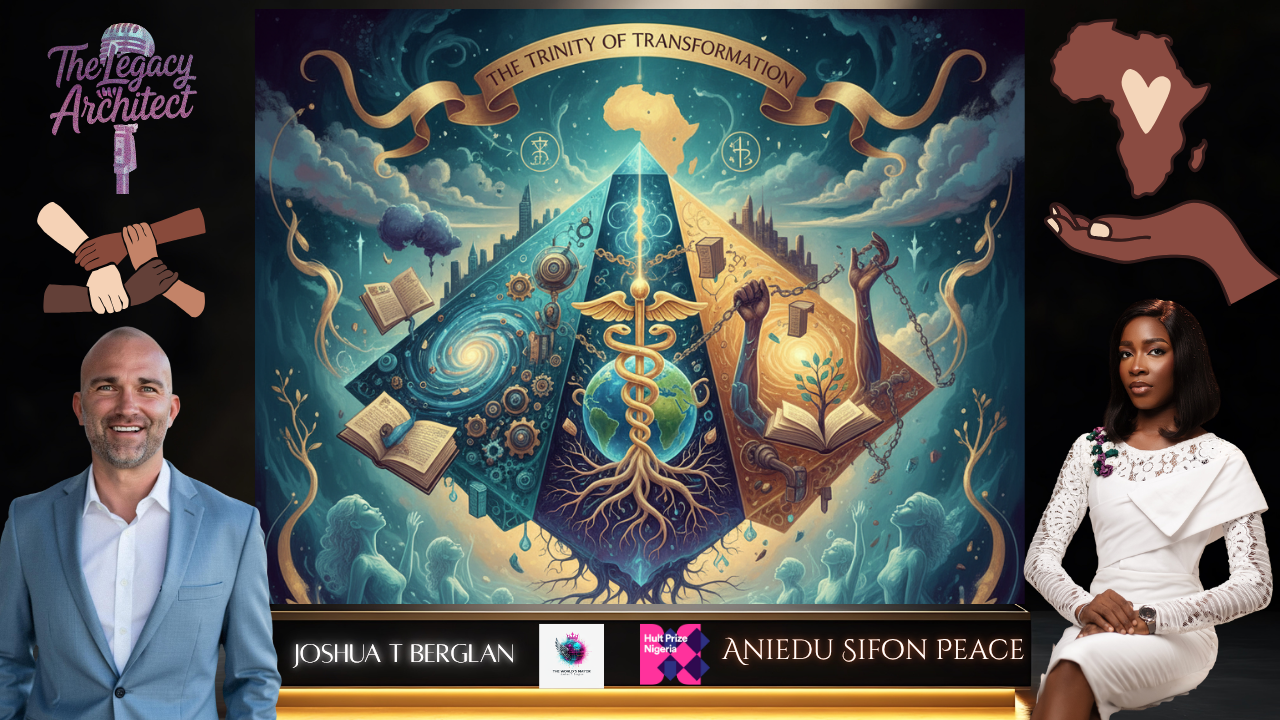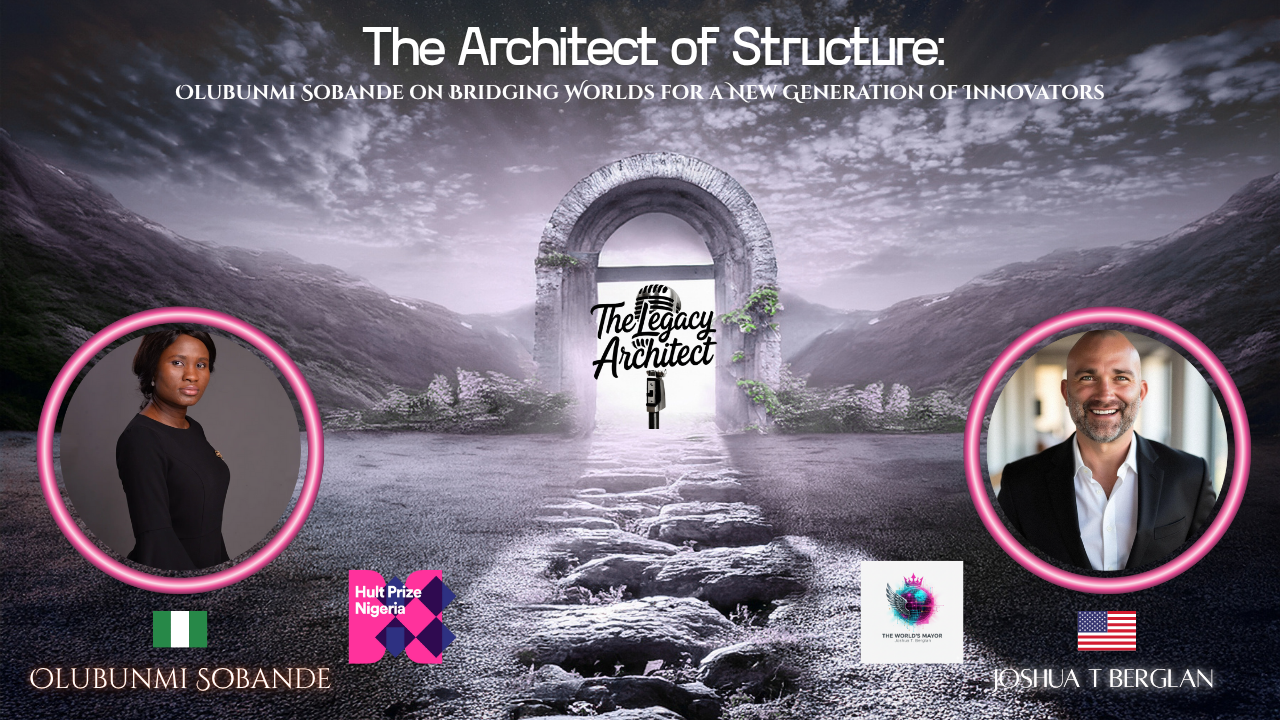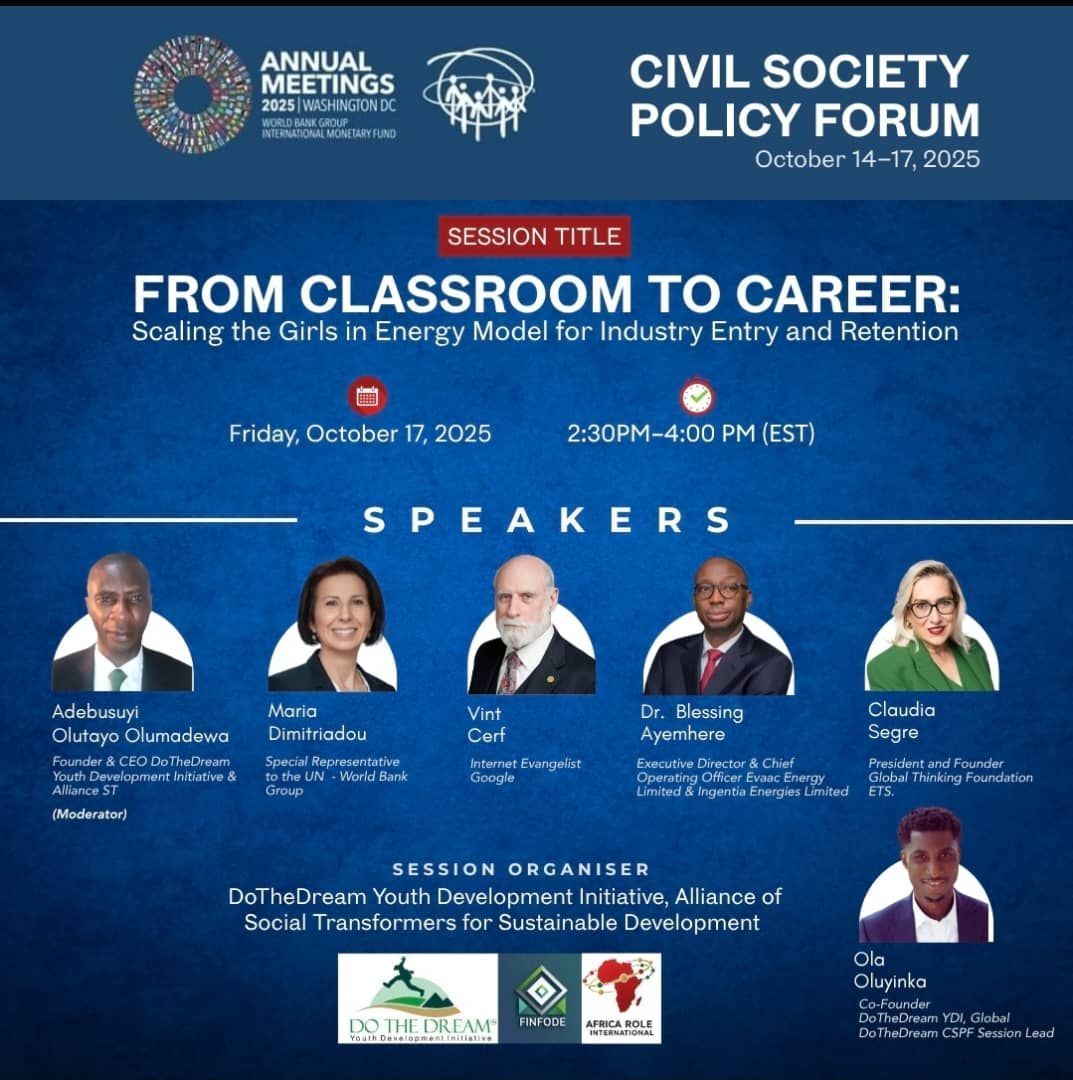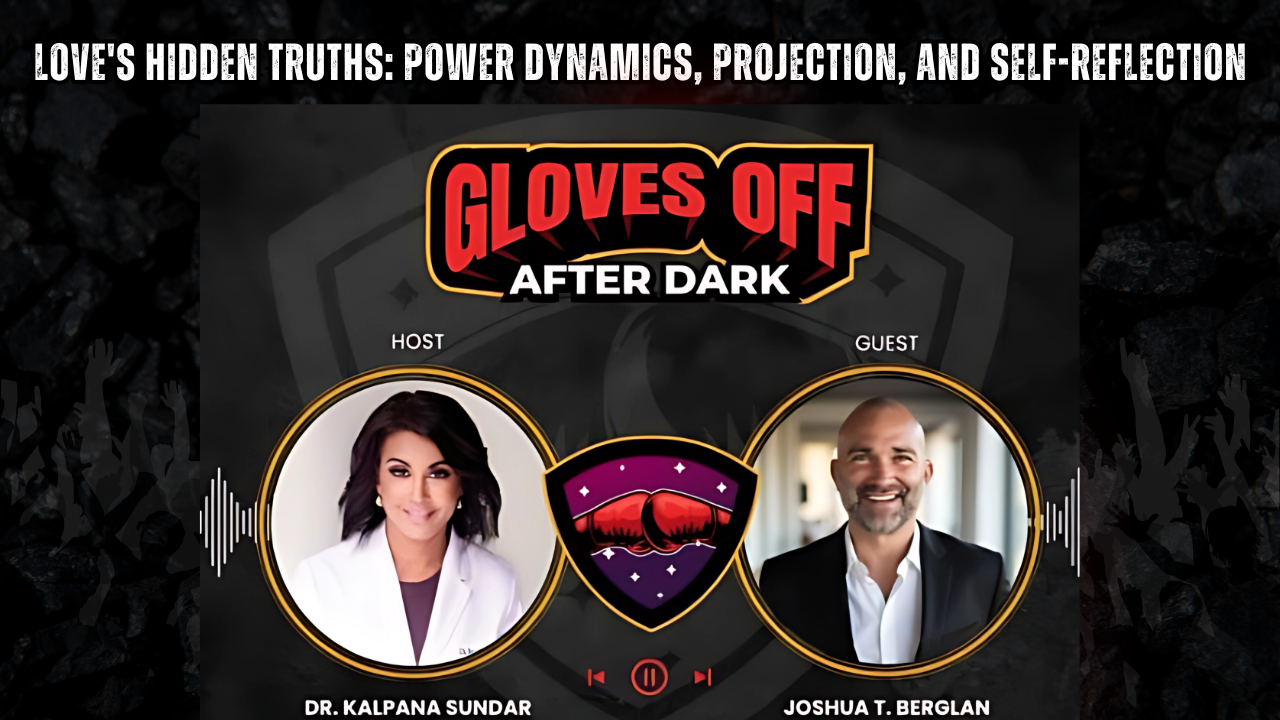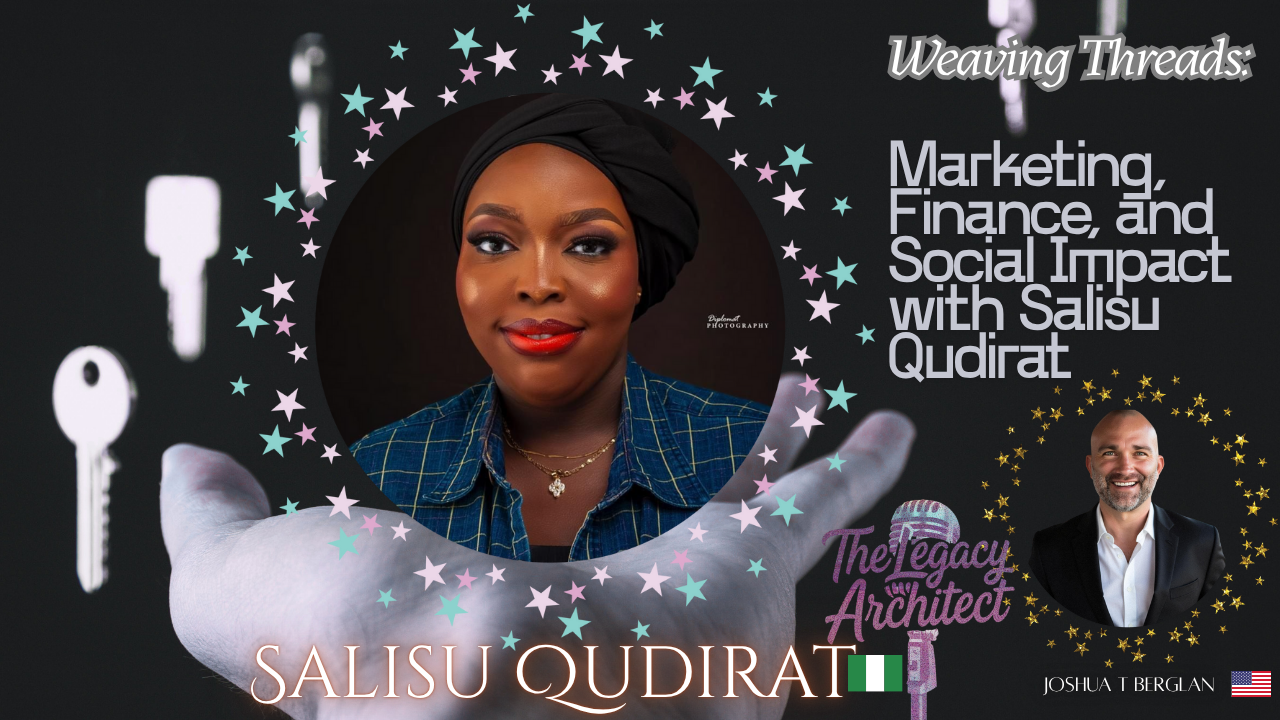Revolutionizing Communication: Trauma-Informed Therapy & Deep Listening with Hadassah Shoshanah
Introduction
In a recent groundbreaking episode of "UnMasking Humanity: 21 Questions with Joshua T Berglan," we had the privilege of exploring the transformative world of communication therapy with Hadassah Shoshanah, a distinguished speech-language pathologist and communication mastery coach. This enlightening conversation unveiled innovative approaches to healing and personal growth through the power of effective communication, offering valuable insights for both professionals and individuals seeking to enhance their interpersonal skills.
The Trauma-Informed Approach to Communication Therapy
A Holistic Perspective
Hadassah's unique methodology sets her apart in the field of speech therapy. She views individuals as a continuum, shaped by their experiences and responses to life events. This trauma-informed lens allows her to provide a more comprehensive, empathetic approach to therapy and coaching.
"When I come from a trauma-informed lens, I'm seeing a person holistically," Hadassah explains. "I understand that the reason they might behave or respond in certain ways stems from their experiences."
This approach creates a sense of calm and relaxation in her patients, as they feel truly understood. By listening through this trauma lens, Hadassah offers more consistent, loving, and patient care, leading to better outcomes for her clients.
The Impact of Trauma on Communication
Trauma can significantly affect an individual's ability to communicate effectively. It may manifest as difficulty in expressing emotions, trouble with articulation, or challenges in interpreting social cues. Hadassah's trauma-informed approach takes these factors into account, allowing for a more nuanced and effective treatment plan.
Creating a Safe Space for Healing
By acknowledging the role of trauma in communication disorders, Hadassah creates a safe and supportive environment for her clients. This safety allows individuals to explore their communication challenges without fear of judgment, leading to more open and honest interactions during therapy sessions.
Overcoming Communication Blind Spots
Developing an "Informed Lens"
One of the most significant challenges in effective communication is our tendency to listen through our own lens of the world. Hadassah emphasizes the importance of developing an "informed lens" - one that allows us to deconstruct our own internal narratives and truly understand others.
"It requires an internal reflective process," she says. "When we have an acute self-awareness, we can offer that understanding to someone else."
This deep listening enables us to extract the pain causing misunderstanding and build stronger connections, both personally and professionally.
Recognizing and Addressing Biases
To develop an informed lens, it's crucial to recognize and address our own biases and preconceptions. Hadassah encourages her clients to engage in regular self-reflection exercises, questioning their assumptions and seeking to understand the perspectives of others.
The Role of Empathy in Communication
Empathy plays a vital role in overcoming communication blind spots. By putting ourselves in others' shoes, we can better understand their motivations, fears, and desires. Hadassah incorporates empathy-building exercises into her therapy sessions, helping clients develop this essential skill.
The Brain-Communication Connection
Neuroplasticity and Communication Recovery
Hadassah's understanding of the brain-communication connection has evolved throughout her career, leading to some remarkable breakthroughs. She shares a powerful story of working with a woman who had lost her ability to speak following a brain hemorrhage. Through intensive therapy and a belief in neuroplasticity, Hadassah helped this patient regain her voice.
"Neuroplasticity says that no matter what happens to the brain, no matter what impact the brain has, there is a way to restore function," Hadassah explains.
This belief in the brain's ability to adapt and change forms the foundation of her approach to therapy and coaching.
The Science Behind Neuroplasticity
Neuroplasticity refers to the brain's ability to reorganize itself by forming new neural connections throughout life. This process allows the brain to compensate for injury and disease and to adjust its activities in response to new situations or changes in the environment.
Applying Neuroplasticity Principles in Therapy
Hadassah incorporates neuroplasticity principles into her therapy sessions by:
- Encouraging repetition and practice of specific communication skills
- Providing varied and challenging exercises to stimulate brain adaptation
- Using multisensory approaches to engage different areas of the brain
- Emphasizing the importance of sleep and stress management in brain health
Nutritional Interventions and Cognitive Health
The Gut-Brain Connection
An intriguing aspect of Hadassah's practice is her exploration of the connection between nutrition, detoxification, and cognitive health. She discusses the impact of toxins, including parasites and heavy metals, on brain function and overall well-being.
"What's interesting is that in the field of allopathic medicine, there's often no room for detoxification and nutritional interventions," Hadassah notes.
She encourages a more holistic approach to health, emphasizing the importance of addressing root causes rather than just treating symptoms.
Nutrition's Role in Brain Function
Proper nutrition plays a crucial role in maintaining optimal brain function. Hadassah highlights the importance of:
- Omega-3 fatty acids for brain health and inflammation reduction
- Antioxidants to protect brain cells from oxidative stress
- B-vitamins for neurotransmitter production and energy metabolism
- Hydration for optimal cognitive function
Detoxification and Cognitive Health
Hadassah discusses the potential impact of environmental toxins on cognitive health and communication abilities. She advocates for gentle detoxification methods, including:
- Supporting the body's natural detox pathways
- Incorporating detoxifying foods into the diet
- Reducing exposure to environmental toxins
- Considering targeted supplementation under professional guidance
Technology in Communication Therapy
Balancing Face-to-Face and Digital Communication
While Hadassah believes that face-to-face communication is paramount, she acknowledges the role of technology in enhancing therapy and coaching practices. She highlights the field of alternative and augmentative communication, which has revolutionized how people with communication disorders can express themselves.
"Technology has improved the way that people who are nonverbal or have trouble expressing themselves communicate," she explains. "It has bridged the gap between being silent and having a voice."
Innovative Technologies in Communication Therapy
Hadassah discusses several technological advancements that have transformed communication therapy:
- Speech-generating devices for non-verbal individuals
- Virtual reality applications for social skills training
- Mobile apps for speech and language exercises
- Teletherapy platforms for remote sessions
The Future of Technology in Communication Therapy
Looking ahead, Hadassah envisions even greater integration of technology in communication therapy, including:
- AI-powered speech recognition for more accurate diagnosis
- Brain-computer interfaces for direct communication
- Personalized digital therapy plans based on real-time data
- Augmented reality for immersive therapy experiences
Cultural Sensitivity in Communication
Navigating Diverse Cultural Landscapes
Working with clients from diverse cultural backgrounds requires a unique set of skills. Hadassah emphasizes the importance of allowing individuals to be who they are while maintaining one's own identity. She advocates for speaking the "vernacular of kindness and patience" - universal qualities that transcend cultural differences.
"I think the key to interpersonal interactions and communication with culturally diverse populations is can I allow that person to be who they are while also allowing myself to be who I am without needing to change myself or change them?" she reflects.
Developing Cultural Competence
To enhance cultural sensitivity in communication, Hadassah recommends:
- Educating oneself about different cultural norms and practices
- Being aware of one's own cultural biases and assumptions
- Practicing active listening and asking respectful questions
- Adapting communication styles to suit different cultural contexts
The Impact of Culture on Communication Disorders
Hadassah also discusses how cultural factors can influence the manifestation and treatment of communication disorders. She stresses the importance of considering cultural context when diagnosing and treating speech and language issues.
The Power of Deep Listening
Beyond Hearing: The Art of Listening
Throughout the interview, one theme emerges consistently: the power of deep, empathetic listening. Whether working with patients recovering from brain injuries, coaching individuals to improve their communication skills, or navigating cultural differences, Hadassah's approach always comes back to truly hearing and understanding others.
"Am I truly listening to the person express themselves? Am I listening between the lines?" she asks. "Can I be with someone who's nonverbal, not saying anything, crying, being really sad, being upset, being angry, being frustrated - whatever it is. Can I be in that space with that person without needing to say anything?"
Techniques for Developing Deep Listening Skills
Hadassah shares several techniques for cultivating deep listening skills:
- Practicing mindfulness to stay present in conversations
- Focusing on the speaker's body language and tone of voice
- Suspending judgment and avoiding interruptions
- Asking clarifying questions to ensure understanding
- Reflecting back what you've heard to confirm comprehension
The Therapeutic Power of Being Heard
Hadassah emphasizes that the simple act of being truly heard can have profound therapeutic effects. By creating a space where clients feel deeply listened to, she helps them process emotions, gain clarity, and develop greater self-awareness.
The Future of Communication Therapy and Coaching
A Vision of Compassionate Communication
Hadassah's vision for the future of communication therapy and coaching is both inspiring and transformative. She sees a world where people communicate from a place of true love, kindness, and patience. Her goal is to contribute to this future by exemplifying these qualities herself and helping others do the same.
"Communication isn't just words," she explains. "It's how we behave, it's how we live our lives. It's our footprint in the world."
By focusing on self-analysis and reinforcing positive communication patterns, Hadassah believes we can create a more connected, understanding world.
Integrating Holistic Approaches
In the future, Hadassah envisions a more integrated approach to communication therapy that combines traditional speech and language interventions with:
- Mindfulness and meditation practices
- Nutritional and lifestyle interventions
- Advanced technological tools
- Cultural competency training
Empowering Self-Directed Healing
Hadassah believes that the future of communication therapy lies in empowering individuals to take an active role in their own healing process. She advocates for providing clients with the tools and knowledge they need to continue their progress outside of therapy sessions.
Practical Applications and Takeaways
To implement Hadassah's insights in daily life, consider the following strategies:
- Develop self-awareness: Understand your own communication patterns and where they stem from.
- Practice deep listening: Focus on understanding others without immediately trying to solve their problems.
- Embrace neuroplasticity: Believe in your brain's ability to change and adapt, regardless of past experiences or diagnoses.
- Consider holistic approaches: Explore the connections between nutrition, detoxification, and cognitive health.
- Leverage technology mindfully: Use communication tools and apps when they genuinely enhance connection and understanding.
- Cultivate cultural sensitivity: Allow others to be themselves while remaining true to your own identity.
- Reinforce positive patterns: Focus on what's working well in your communication rather than dwelling on mistakes.
Conclusion: A New Paradigm in Communication
As we reflect on this insightful conversation with Hadassah Shoshanah, we're reminded of the transformative power of communication. By adopting a trauma-informed, culturally sensitive approach and embracing the potential for neuroplasticity, we can all become better communicators and, in turn, create more meaningful connections in our personal and professional lives.
Hadassah's work serves as an inspiration and a call to action. By becoming more aware of our communication habits and striving to understand others on a deeper level, we can contribute to a world where empathy, kindness, and true connection flourish.
To learn more about Hadassah's work or to connect with her, visit her Instagram @hadassarose.slp or her upcoming website at hadassah@morethanspeechtherapist.com. As Hadassah herself says, "If I can help one person... then I know that I've done my work on this planet."
Key Takeaways
- Trauma-informed communication therapy leads to better outcomes
- Deep listening is crucial for overcoming communication blind spots
- Neuroplasticity offers hope for recovery from brain injuries and disorders
- Holistic approaches, including nutrition and detoxification, can support cognitive health
- Technology can bridge communication gaps when used mindfully
- Cultural sensitivity enhances communication across diverse populations
- Focusing on positive reinforcement accelerates progress in therapy and coaching











